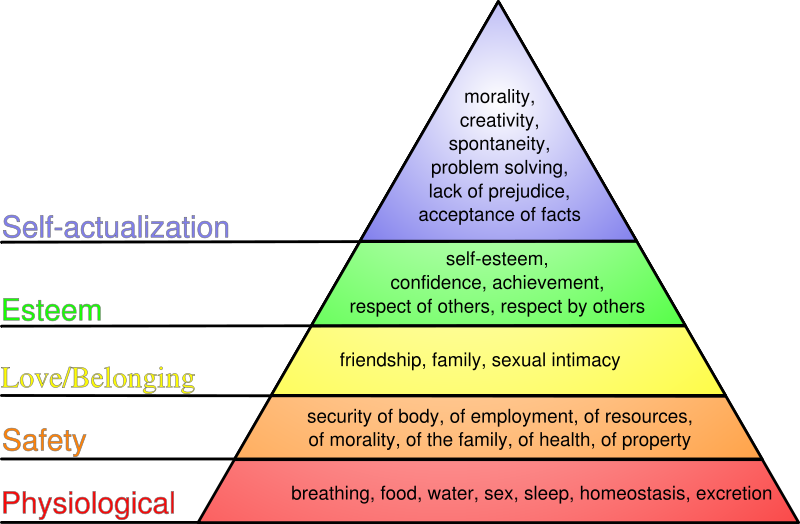
 5
5



 5
5



paul wheaton wrote:
- -
To me, this seems really obvious and simple. Nothing profound here. By some standards this is terrible?
You do not have to be good.You do not have to walk on your knees For a hundred miles through the desert, repenting.You only have to let the soft animal of your body
love what it loves. -Mary Oliver
 5
5



“Enough is as good as a feast"
-Mary Poppins
 1
1



Moderator, Treatment Free Beekeepers group on Facebook.
https://www.facebook.com/groups/treatmentfreebeekeepers/





 1
1



Philip Jurkowich



 1
1



Nope, not by mineBy some standards this is terrible?
 I think that line of thinking is practical and totally workable and fair.
I think that line of thinking is practical and totally workable and fair.
"We're all just walking each other home." -Ram Dass
"Be a lamp, or a lifeboat, or a ladder."-Rumi
"It's all one song!" -Neil Young



By some standards this is terrible?



 1
1



Subtropical desert (Köppen: BWh)
Elevation: 1090 ft Annual rainfall: 7"



 1
1



 is completely filled, but in 'the real world through my perspective,' Maslow's Hierarchy of Needs is not completely filled due to qualities lacking in work, community, mind, etc.
is completely filled, but in 'the real world through my perspective,' Maslow's Hierarchy of Needs is not completely filled due to qualities lacking in work, community, mind, etc.
Dave's SKIP BB's / Welcome to Permies! / Permaculture Resources / Dave's Boot Adventures & Longview Projects














 1
1



Fulfillment comes in various forms, and sadly, for some people fulfillment comes in material things like money, thing-a-bobs, and what not, instead of things that are immaterial and a thousand times more fulfilling, like good friends, a beloved kitten, time spent in a (food) forest, an hour walking outside, etc. These material things are believed to lead to fulfillment, but whatever they do bring as fulfillment is temporary, and thus more "stuff" is demanded, and "fair share" becomes a thing. Then, of course, there are obsessions, too.
 2
2



 1
1



 5
5



Subtropical desert (Köppen: BWh)
Elevation: 1090 ft Annual rainfall: 7"
 2
2



Jennifer Wadsworth wrote:@Bradley - I like the "don't be an asshole" ethic. I know it's open to interpretation but still - it gives one pause to examine their actions!
 1
1



Jennifer Wadsworth wrote: I also thought about Paul's need for someone to clean up after people at the Lab - a pretty thankless job. Now if no one wants that job, and it goes undone and, after awhile, creates an unpleasant physical/mental/emotional environment for the people living there, you'd think someone who was good at cleaning could, literally, "clean up" having other people pay them to do this necessary but mundane task. While taking less skill than some other projects, it's obviously one that people don't take the time to do but yet still needs to be done. In this model, I foresee the cleanup person making the most money of anyone at the Lab.



paul wheaton wrote:
I think there is a lot of truth to this.
One of the things I am thinking of here is to go one step further: with a dozen people, there is a huge need to clean up after them. But how do we design a system such that there is not the need. Human nature leads to a space where the problem does not occur? I think the ant village is 98% of that. Each person has their own acre.
http://www.cloud9farms.com/ - Southern Colorado - Zone 5 (-19*f) - 5300ft elevation - 12in rainfall plus irrigation rights
Dairy cows, "hair" sheep, Kune Kune pigs, chickens, guineas and turkeys
 2
2






 1
1



Iterations are fine, we don't have to be perfect
My 2nd Location:Florida HardinessZone:10 AHS:10 GDD:8500 Rainfall:2in/mth winter, 8in/mth summer, Soil:Sand pH8 Flat
 7
7



William Bronson wrote:
The Amish might seem to have an idyllic government free lifestyle, if you are you know not a woman or child
You do not have to be good.You do not have to walk on your knees For a hundred miles through the desert, repenting.You only have to let the soft animal of your body
love what it loves. -Mary Oliver
 5
5



Pecan Media: food forestry and forest garden ebooks
Now available: The Native Persimmon (centennial edition)
 3
3



Moderator, Treatment Free Beekeepers group on Facebook.
https://www.facebook.com/groups/treatmentfreebeekeepers/





 3
3



Jennifer Wadsworth wrote:
Now wonder if someone who was plugged into this system has an accident and can no longer perform their previous job, they will have to look for something else to do - possibly teach a skill, work on outreach or management, etc. Say that there's a place for them and they find something suitable. All's well. However, what if someone has a stroke and they've lost much motor control and the ability to speak. They have some savings but not enough to live on for the rest of their lives. What does the community do with that person? What does the community do with the disabled or elderly or any person who for whatever reason probably can't make it by themselves? In traditional societies, the extended family takes care of them. Would the community at the Lab take care of its own?
Here's a statistic from the US Social Security Disability page. 25% of the population will become "disabled" for some period of time during their lifetime. One quarter of the population. It could be for a short time, a longer time or perhaps a person is born with a disability. While I'm all for having a diverse skillset that will see you through a variety of situations, sometimes shit just happens. One needs to work this into whatever community one is forming because it's not a matter of "if", it's a matter of "when".
This is probably going to ring to the vast majority of the world's population as horribly offensive. I think this might even ring as horribly offensive to a majority of permaculture people.
 4
4





 4
4



Iterations are fine, we don't have to be perfect
My 2nd Location:Florida HardinessZone:10 AHS:10 GDD:8500 Rainfall:2in/mth winter, 8in/mth summer, Soil:Sand pH8 Flat
 3
3



Come join me at www.peacockorchard.com
 6
6



elle sagenev wrote:If that little girl who was prostituted our by her mother for drugs looks to drugs to dull the pain of her existence, do I blame her? Do I refuse to give her food because she does not contribute to MY life?
[snip]
Guess I'm just an odd one. I plan to be horribly wealthy but I've got a bit of a socialist side, though I prefer to think of it as compassion.
Nerds be nerding...
 2
2



Bill Crim wrote:
elle sagenev wrote:If that little girl who was prostituted our by her mother for drugs looks to drugs to dull the pain of her existence, do I blame her? Do I refuse to give her food because she does not contribute to MY life?
[snip]
Guess I'm just an odd one. I plan to be horribly wealthy but I've got a bit of a socialist side, though I prefer to think of it as compassion.
It is indeed compassionate for you to help the unfortunate by providing assistance. However, you are simply shifting the burden to yourself. Nobody can relieve a person of a moral obligation to provide for their own maintenance/welfare. The reason a person is needy is irrelevant; compassion can only happen so long as the benefactor has the resources to continue to provide assistance.
Paul has been been funding the life/lifestyles of 3-12 at any one time. He also has obligations to the awesome Permies who already chipped in with financial assistance to buy the Lab and Basecamp. Paul is already sacrificing income producing potential of his land by trying to make it a zone of permaculture experimentation. He is also sacrificing his $300/hr High-Powered Computer Contractor rate to run Permies.com. He is sacrificing his health/relationships by working 14+ hour days. When the benefactor is operating at that capacity, having non or marginally productive people puts the entire system at risk.
It doesn't make sense for anyone to come to the Lab unless they are willing to:
Relieve a burden from Paul/Lab Produce additional resources for Paul/Lab Have a learning experience that is a net neutral on resources.
Living in a pro-permaculture space, with so many pro-permaculture people, is a real benefit. It isn't too much to ask for each person to only cost Paul $-100 net per year instead of $-4000.
Come join me at www.peacockorchard.com
 1
1



Dave's SKIP BB's / Welcome to Permies! / Permaculture Resources / Dave's Boot Adventures & Longview Projects














 6
6



"You must be the change you want to see in the world." "First they ignore you, then they laugh at you, then they fight you, then you win." --Mahatma Gandhi
"Preach the Gospel always, and if necessary, use words." --Francis of Assisi.
"Family farms work when the whole family works the farm." -- Adam Klaus



R Scott wrote:I have come to call my philosophy "Christian Libertarianism."
I find it very odd that those that scream loudest for their free thinking are also the most likely to try to force you to think their way.
As a foster parent, I saw things like Elle did. But I also saw a lot of abuse by the state--one size does not fit all in any context.
So I help widows and orphans and those who I think (after observation) are victims of circumstances however I can. Sometimes it is money; usually it is food, clothing, or time.
I don't make others give--that is really taking through force or coercion. I don't give to the same person too regularly to avoid creating dependency or entitlement attitude. That loss of gratitude is bad for the receiver but devastating for the giver-it either hardens their heart to stop giving or worse, to start abusing and turn the gifting into controlling. And then they become the thing they hated.
You do not have to be good.You do not have to walk on your knees For a hundred miles through the desert, repenting.You only have to let the soft animal of your body
love what it loves. -Mary Oliver
 2
2



soloenespana.wordpress.com



Dustin & Ping, Galt's Retreat. Voluntaryist Ecovillage
http://www.ic.org/advert/voluntaryist/
https://www.facebook.com/groups/286170261745393/
 2
2



Idle dreamer
 4
4



Tyler Ludens wrote:How will Galt's Retreat deal with people who become ill, injured, disabled, or old?
Bill Mollison wrote:The only ethical decision is to take responsibility for our own existence and that of our children.
Nerds be nerding...
 2
2



Living in Anjou , France,
For the many not for the few
http://www.permies.com/t/80/31583/projects/Permie-Pennies-France#330873
 1
1



Bill Crim wrote:
If you are talking about how will the community take care of its own elderly and sick, then it will do it like they always have; Friends, family, and a person's stored surplus will do it.
Idle dreamer



Tyler Ludens wrote:I'm doubtful about how effective this strategy will be. To me it looks like "get poor and die."

|
I want my playground back. Here, I'll give you this tiny ad for it:
Looking for cold-climate growers to join a GOOF livestream panel (Missoula)
https://permies.com/t/369111/cold-climate-growers-join-GOOF
|



